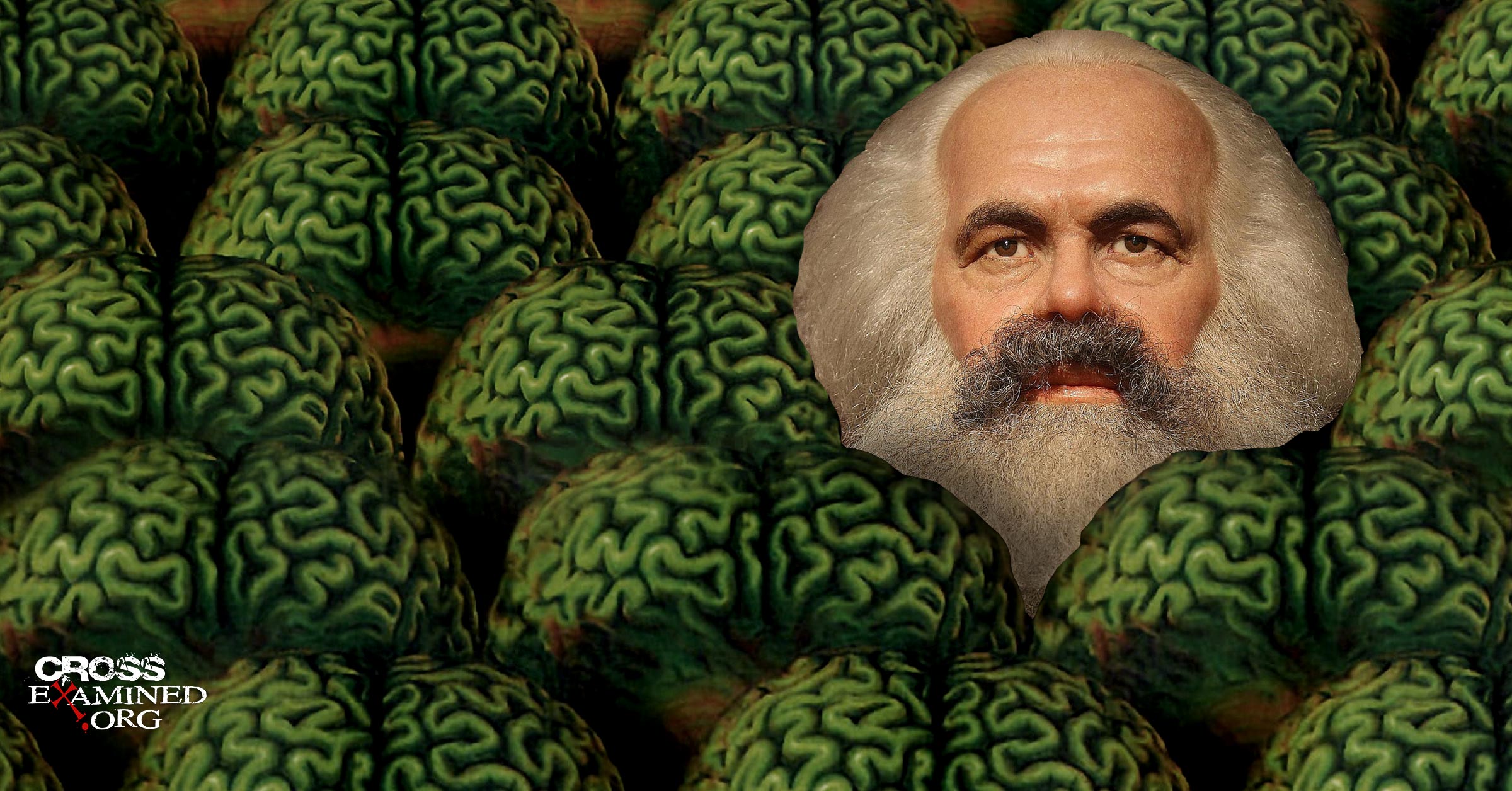In this post, we’re asking the question: What does Paul say about homosexuality? To find out, we need to investigate Romans 1:26-27, 1 Corinthians 6:9-10, and 1 Timothy 1:9-10. Let’s consider each text in turn.
Romans 1:26-27
This passage is probably the most significant biblical text addressing homosexuality. In the broader context, we read that God reveals his wrath from heaven against all ungodliness. Even though people know God exists through natural revelation, they have suppressed the truth and worshipped idols instead. Therefore, God hands them over to their depraved minds. Verses 26-27 give us an example of this depravity:
For this reason, God gave them up to dishonorable passions. For their women exchanged natural relations for those that are contrary to nature (para physin); and the men likewise gave up natural relations with women and were consumed with passion for one another, men committing shameless acts with men and receiving in themselves the due penalty for their error.
So what exactly does Paul condemn here? Matthew Vines, author of God and the Gay Christian notes, “Paul wasn’t condemning the expression of same-sex orientation as opposed to the expression of an opposite-sex orientation. He was condemning excess as opposed to moderation.“1 Elsewhere he states that Paul “explicitly described the behavior he condemned as lustful. He made no mention of love, fidelity, monogamy, or commitment.”2
That is to say, and Paul doesn’t condemn homosexuality in general. He merely condemns the excesses or abuses that were common in the ancient world. These excesses included pederasty, master/slave rape, or prostitution. If Paul, according to Vines, would have seen examples of committed, monogamous same-sex partners, he would have celebrated them.
In response to Vines, I simply note that nowhere does Paul limit his condemnation to specific types of homosexuality like master/slave relations, pederasty, or prostitution. Rather, he condemns homosexuality in general terms.
If he wanted to condemn pederasty, for example, he could have simply used the Greek word paiderastes. If he meant to condemn a master appeasing his sexual desire with his male slave, then why state that they were “consumed with passion for one another?” Doesn’t that sound like two consenting adults? Furthermore, why mention the women engaging with one another when we have no record of female master/slave or pedophilia relations from the ancient world?
Contrary to Vines, Paul condemns homosexuality in general (not limited to specific abuses) and roots his condemnation in creation itself. This explains why he writes that homosexual activity is an “exchange of natural relations that are “contrary to nature” (para physin in the Greek). Other revisionists (not Vines) take this to mean that some men’s sexual appetites were so insatiable, that they went against their heterosexual nature to have sexual relations with other men. In other words, “going against nature” simply means going against one’s heterosexual orientation. Thus, the text doesn’t condemn those with a homosexual orientation engaging in sexual activity.
But this explanation fails on multiple fronts. Not only do ancient authors repeatedly use the phrase “para physin” to refer to homosexual activity (not going against one’s orientation), Paul goes to great lengths to state that his position is rooted in the creation narrative of Genesis 1-3. In the surrounding context, he uses phrases such as “creation of the world” (1:20), “creator” (1:25), “birds and animals and creeping things” (1:23), “women” and “men” (1:26-27), “image” (1:23), “lie” (1:25), “shame” (1:27), and “death” (1:32). These allusions to the creation narrative indicate that Paul sees homosexuality as an affront to God’s design for marriage as outlined in Genesis 1-2.
Self-professed lesbian Bernadette Brooten writes in her scholarly book Love between Women:
I believe that Paul used the word “exchanged” to indicate that people knew the natural sexual order of the universe and left it behind. . . . I see Paul as condemning all forms of homoeroticism as the unnatural acts of people who had turned away from God.”3
Romans 1:26-27 doesn’t merely condemn excesses. It condemns homosexual activity in general as an affront to God’s design for sexuality.
1 Corinthians 6:9-10 And 1 Timothy 1:9-10
I lump these two together because they are similar in nature.
Or do you not know that the unrighteous will not inherit the kingdom of God? Do not be deceived: neither the sexually immoral, nor idolaters, nor adulterers, nor men who practice homosexuality (malakoi and arsenokoitai), nor thieves, nor the greedy, nor drunkards, nor revilers, nor swindlers will inherit the kingdom of God. — 1 Corinthians 6:9-10
Understanding this, that the law is not laid down for the just but for the lawless and disobedient, for the ungodly and sinners, for the unholy and profane, for those who strike their fathers and mothers, for murderers, the sexually immoral, men who practice homosexuality (arsenokoitai), enslavers, liars, perjurers, and whatever else is contrary to sound doctrine. — 1 Timothy 1:9-10
Paul’s use of arsenokoitai is the first known use of this word in the ancient world. It’s a compound word of man (arsen) and bed (koite). The word literally means “bedders of men.” It’s a term that conveys action, which is why the NIV translation of the word “men who have sex with men” is preferable to one like the NASB’s which simply reads “homosexuals.” Scholars are in agreement that Paul coined this term using the Septuagint translation of Leviticus 20:13:
If a man lies with a male (arsenos koiten) as with a woman, both of them have committed an abomination; they shall surely be put to death; their blood is upon them.
This text clearly condemns both partners for participating in homosexual activity. It says that “both of them have committed an abomination.” In the same way, 1 Corinthians 1:9-10 appears to condemn both partners as well. Not only does Paul condemn arsenokoitai (bedders of men), right before that he condemns malakoi (soft ones).
The Greek word malakoi has a broad range of meaning. It can refer to men who have long hair, wear makeup, have a fondness for expensive clothing, gluttons, the lazy who avoid manual labor, or the acceptance of being penetrated by other men. So which of these does Paul condemn here?
It’s noteworthy that the Jewish philosopher Philo twice uses the word malakoi to refer to passive homosexual partners. It’s also noteworthy where Paul places this word in his list of vices. He places it right between moikoi (adulterers) and arsenokoitai. When a word has a broad range of definitions, context usually is the strongest determiner of the author’s meaning. Considering malakoi’s placement in the sentence, it’s likely that Paul’s referring to a passive male partner in homosexual sex. After all, it’s hard to imagine that Paul would say that men who like designer clothing or a good chick flick will not inherit the kingdom of God. He must be referring to something more blatant.
Was There Really No Concept Of Homosexual Orientation In The Ancient World?
As I’ve alluded to numerous times in this blog series, revisionists argue that when the Bible condemns homosexuality, it condemns abuses — not lifelong, monogamous relationships. Revisionists argue that homosexual orientation and committed homosexual relationships were completely foreign in the ancient world. Therefore, the biblical authors didn’t condemn them. But is this an accurate assessment?
Louis Crompton, a gay man and scholar of queer studies states in his book Homosexuality and Civilization:
Some interpreters, seeking to mitigate Paul’s harshness, have read the passage [in Romans 1] as condemning not homosexuals generally but only heterosexual men and women who experimented with homosexuality. According to this interpretation, Paul’s words were not directed at “bona fide” homosexuals in committed relationships. But such a reading, however well-intentioned, seems strained and unhistorical. Nowhere does Paul or any other Jewish writer of this period imply the least acceptance of same-sex relations under any circumstances. The idea that homosexuals might be redeemed by mutual devotion would have been wholly foreign to Paul or any Jew or early Christian.”4
In other words, while Crompton supports homosexuality, he says the revisionists’ arguments don’t work. It’s a massive leap in logic to think that Paul would have embraced homosexual relationships if he had only seen good examples of them.
Furthermore, the idea of homosexual orientation wasn’t completely foreign to the ancient world. Thomas K. Hubbard, a non-Christian classical scholar notes in Homosexuality in Greece and Rome:
“Homosexuality in this era may have ceased to be merely another practice of personal pleasure and began to be viewed as an essential and central category of personal identity, exclusive of an antithetical to heterosexual orientation.“5
Notice what Hubbard says here. He argues that people in the ancient world experienced homosexual orientation and self-identified as homosexuals.
In Plato’s Symposium, a philosophical text depicting a contest of extemporaneous speeches by notable men, speaks to the reality of homosexual orientation. Consider these excerpts from two of the speeches:6
“For they fall in love with boys only at the point when they begin to have in their possession a mind; and this moment approximates the time when they begin to get a beard. For, I think, those who begin from that moment to fall in love with them are prepared to love in the expectation that they will be with them all their life and will share their lives in common.” — Pausanias
In other words, he speaks of a loving, life-long commitment between homosexual partners. Or consider this other speech:
“So of course when he also happens upon that very person who is his half, whether the lover of boys or any other, then they are wonderfully struck with affectionate regard and a sense of kinship and love, almost not wanting to be divided even for a short time. And these are they who continue with one another throughout life. . . . Each desiring to join together and to be fused into a single entity with his beloved and to become one person from two.” — Aristophanes
Here, again, is another example of life-long homosexual commitments. Commenting further on this subject, N. T. Wright argues:7
“As a classicist, I have to say that when I read Plato’s Symposium, or when I read the accounts from the early Roman Empire of the practice of homosexuality, then it seems to me they knew just as much about it as we do. In particular, a point which is often missed, they knew a great deal about what people today would regard as longer-term, reasonably stable relations between two people of the same gender. This is not a modern invention; it’s already there in Plato. The idea that in Paul’s day it was always a matter of exploitation of younger men by older men or whatever . . . of course there was plenty of that then, as there is today, but it was by no means the only thing. They knew about the whole range of options there.”
In the end, the revisionist arguments fall short. Nowhere does Paul limit his condemnation to homosexual abuses. Furthermore, we have no reason to believe that Paul was ignorant of homosexual orientation.
Concluding Thoughts
Based on the above evidence, Paul condemns homosexual behavior in general — not just abuses. He condemns both men and women in Romans 1, and both the active and passive partners in 1 Corinthians 6. The revisionist arguments that Paul had no concept of homosexual orientation, and therefore, couldn’t have condemned it lacks historical backing.
Recommended resources related to the topic:
Five Questions No One Ever Asks About Gay Rights (DVD Set), (Mp4 Download), and (Mp3 Set) by Dr. Frank Turek
Correct, NOT Politically Correct: How Same-Sex Marriage Hurts Everyone (Updated/Expanded) downloadable pdf, PowerPoint by Dr. Frank Turek
Ryan Leasure holds a Master of Arts from Furman University and a Masters of Divinity from the Southern Baptist Theological Seminary. Currently, he’s a Doctor of Ministry candidate at the Southern Baptist Theological Seminary. He also serves as a pastor at Grace Bible Church in Moore, SC.
Original Blog Source: https://bit.ly/307D1ta










